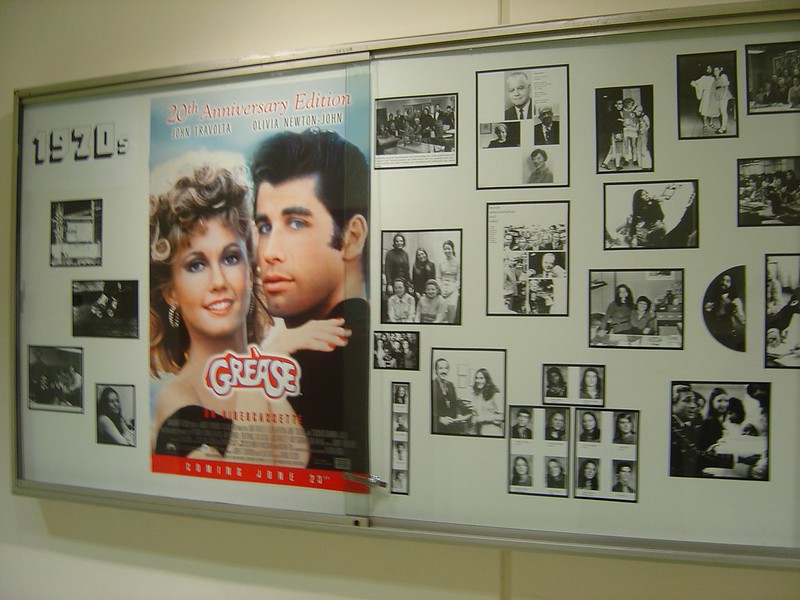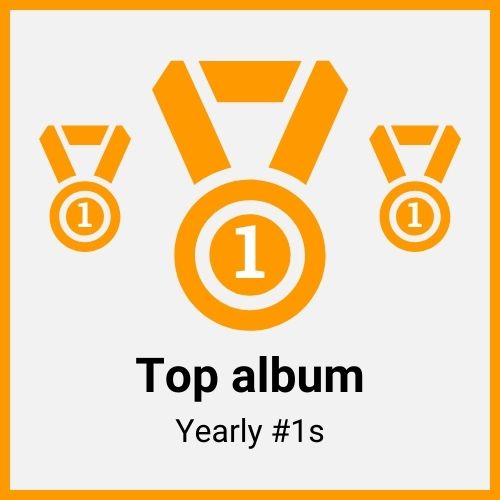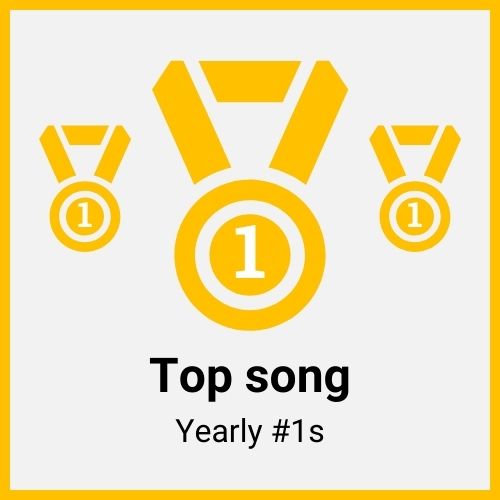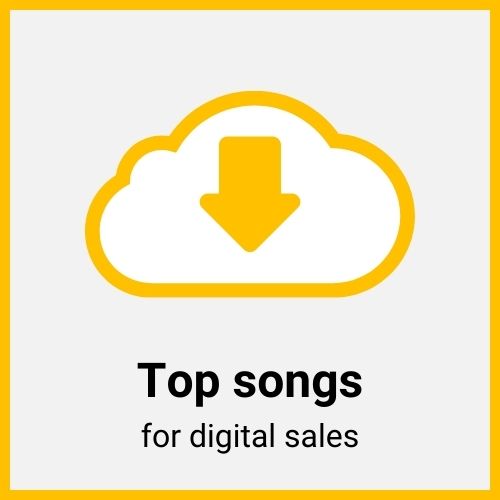Grease albums and songs sales
After a dozen of CSPC articles about various popular artists, here comes a pretty specific one, a comprehensive Grease Soundtrack analysis. It is well-known that this album is one of the very top selling albums ever, comfortably inside the Top 10, likely Top 5.
The success story wasn’t limited to the album as singles including You’re The One That I Want and Summer Nights were incredibly popular too, confirming John Travolta unreal year a few months after Saturday Night Fever and rocketing Olivia Newton-John into much higher spheres than ever before.
Considering the ranking in an album sales only is already known for Grease, we may wonder if this article is really worth it. This is one of the most important ones. Why so? To prove this album isn’t as big as we think. Indeed, Grease has been one of the very pop records to sell bucketloads as a catalog album. A prime example is how it outsold Saturday Night Fever by 3-5 to 1 in all markets since 25 years, despite the latter being the strongest seller during their initial run.
When I introduced the Commensurate Sales to Popularity Concept, I first mentioned how facts can also lie. Grease being a massive catalog seller and one of the five best selling albums ever are both factually true but both lies still. The main reason why Grease outsells constantly Saturday Night Fever is barely because hits from Fever are largely sold through Bee Gees compilations. In the other side, except a few Olivia Newton-John compilation that sold nowhere near than Bee Gees packages, Grease has been benefitting from its singles success on its own for nearly four decades. Up to now, the Top 3 albums analyzed with CSPC method are Appetite For Destruction by the Guns N’ Roses at 45,4 million, Nevermind by Nirvana at 51,6 and Led Zeppelin IV at 55,1 million. How high will Grease climb?
ChartMasters’ method: the CSPC
As usual, I’ll be using the Commensurate Sales to Popularity Concept (CSPC) in order to relevantly gauge the act’s results. It will not only bring you sales information for all albums, physical and download singles, as well as audio and video streaming. In fact, it will really determine the act’s popularity.
If you are not yet familiar with the CSPC method, below is a nice and short video of explaining the concept. I recommend watching it before reading on and to the sales figures. You’ll get the idea in just two minutes.
And if you want to know the full method as well as formulas, you can read the full introduction article.
Now let’s get into the artist’s detailed sales figures!
Original Albums Sales
Grease (1978)
- America
- US – 16,500,000
- Canada – 2,200,000
- Argentina – N/A
- Brazil – N/A
- Mexico -N/A
- Asia
- Japan – 1,100,000
- Oceania
- Australia – 1,125,000
- New Zealand – 200,000
- Europe – 13,100,000
- UK – 2,700,000
- France – 2,040,000
- Germany – 2,450,000
- Italy – 800,000
- Spain – 900,000
- Sweden – 250,000
- Netherland – 900,000
- Switzerland – 250,000
- Austria – 225,000
- Finland – 80,000
- World – 38,100,000
Original Album Sales – Comments
1978 Grease – 38,100,000
Barely one album to estimate – it shouldn’t be too complicated! Well, it is. Grease is famous among chart followers for being the most under certified album ever. In the US, it was last certified in 1984. In the UK the last non-automatic certification was way back in 1978 and limited at Platinum. In Germany, it happened in 1979. In France, the album was only Gold in 1978. The 1991 CD re-issue was certified on its own, just like it happened in Spain or in New-Zealand. To summarize, certifications of Grease are a huge mess.
This is due to RSO label facing bankruptcy a few years after the soundtrack release. While it got absorbed by other labels, it seems paperwork wasn’t fully transferred. In fact, in 1980 both the Bee Gees for Saturday Night Fever and rights holders of Grease went in court against RSO for falsified – downgraded – album sales in the aim of paying less royalties to artists. As it wasn’t enough, the rare information remaining about the album sales in several key markets published by Billboard from 1978 to 1979 appear to be largely corrupted as well as most figures were doubled due to the record being a 2-discs album.
After deep checks it appears the album moved 15 million copies – 30 million discs, to avoid confusion – by the end of the 70s. Up to 1984, the tally was on 17 million. While years 1984 to 1990 were weak for the album with vynil dying and no CD released, when that format came out in 1991 it sold massively, boosting the overall total of Grease to 28 million by 1997 as published by Billboard in March that year. During 1998, the movie was relaunched in theaters to celebrate the 20th anniversary of the initial release, boosting sales in incredible fashion again. In Australia for example the album shot to #1 in each run 1978, 1991 and 1998. Those catalog sales granted Grease some 10 million more sales worldwide since 1997.
Physical Singles Sales
Released during the disco fever with outstanding physical single sales in various markets, Grease ended up as one of the biggest selling era ever for this format. It’s first two singles topped the 2 million mark in the US, singles 2 and 3 sat inside the all-time top selling singles in the UK until the change of millennium while You’re The One That I Want remains one of the Top 5 best selling singles ever in France, just to point out a few examples.
As a reminder, the weighting is done with a 10 to 3 ratio between one album and one physical single.
Grease – 4,100,000
You’re The One That I Want – 10,400,000
Summer Nights – 4,900,000
Hopelessly Devoted To You – 2,400,000
Sandy – 1,100,000
Greased Lightnin’ – 900,000
Grease Megamix – 600,000
All in all, the massive total of 24,4 million physical singles sold, a big 7,32 million albums sales equivalent. You’re The One That I Want cracks the 10 million mark. While many big hits from the past are claimed at such amounts, those who really achieved it a very rare and this song is one of them.
Digital Singles Sales
I won’t lie, I do not have more information about Grease singles in digital formats than you. Luckily for us, streaming comes to help us. Although this ratio is changing every day with streaming now increasing much faster than download sales, up to August 2016 a deep catalog Pop hit will have a ratio of about 20 between both formats, e.g. 1 million downloads worldwide for every 20 million streams as shown on Spotify. Album tracks on average have a higher ratio at around 30. In fact, people will rarely specifically download an album track, while they may stream it simply because they have stream the hits and let the album tracklist play continue.
Both ratios applied to Grease Spotify results equal to 6,34 million singles downloaded, with You’re The One That I Want unsurprisingly coming at the top with over 1,8 million. Summer Nights is a distant second at an estimated 900,000 units. In terms of albums equivalent, with a 10 to 1 weighting, those download sales are on par with 951,000 albums sold.
Streaming Sales
Below table lists Spotify streaming of all songs from the five albums we are studying. The Comprehensive Streaming is reached by multiplying Spotify figures by 68/26. In fact, as shown in IFPI 2015 Report, there were 68 million paying subscribers to all streaming platforms by the end of 2015. While the exact count of Spotify paying subscribers by the end of 2015 is unknown, that figure reached 20 million in June 2015 and 30 million in March 2016, thus an estimated 26 million is used as of the end of 2015.
The equivalent album sales is the division of the comprehensive streaming figure by 1500 as it is now the norm in the new industry model.
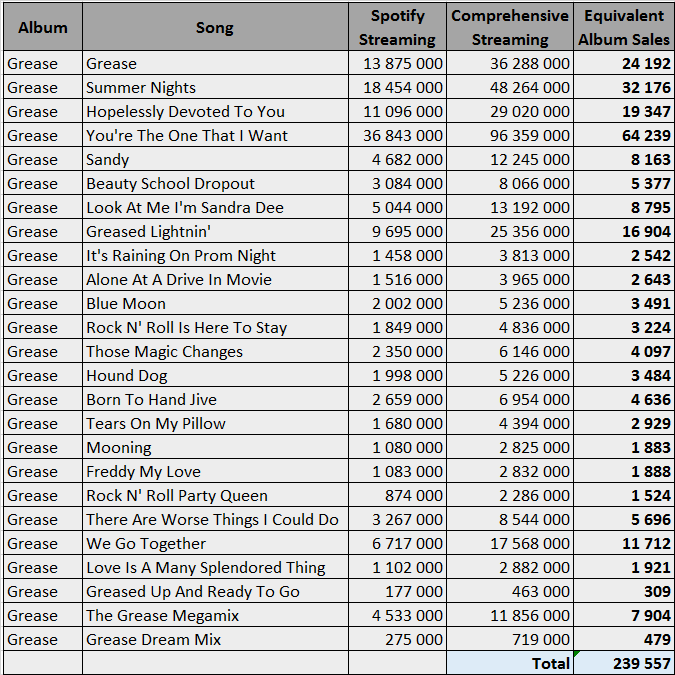
While nothing record-breaking, Grease former singles have decent streaming results. You’re The One That I Want is up to nearly 37 million. If you wonder how good or bad that is among similar songs, this puts it at the very end of most streamed songs from the 70s. A spectacular result in absolute terms, not so big if you consider it was one of the very very biggest hits of the decade.
The overall equivalence of 240,000 albums is rather good although once again it looks irrelevant in comparison to the gigantic 38,1 million copies the album sold on its own.
Full Length related records Sales
You may wonder why this section exists as you can hardly release greatest hits or DVDs out of a soundtrack. If John Travolta never had proper compilation albums either, both Frankie Valli – along with his past band The Four Seasons – and Olivia Newton-John had various compilations in post-1978 that included their respective Grease singles. Let study how much those songs contributed into their hits albums.

How to understand this table? If you check for example The Four Seasons compilations album line, those figures mean they sold a combined 3,000,000 units worldwide. The second statistics column means all versions of all songs included on this package add for just over 104 million streaming plays on Spotify as of August 24 2016.
The second part at the right of the table shows how many streams are coming from Grease album plus the share it represents on the overall package streams. Thus, streaming figures tell us Grease songs is responsible for 13% of the all Four Seasons compilations track list attractiveness, which means it generated 400,000 of its 3,000,000 album sales and so on for the other records. As a notice, I usually perform those statistics on specific albums. In the case of both Four Seasons and Olivia Newton-John, they released a large number of career spanning compilations with roughly the same 20-hits tracklist. I used the share of their respective Grease hits among their respective Top 20 hits.
As you can see, I also noted N/A for streaming details of Olivia Newton-John. Indeed, while Grease songs represent 79% of Greatest Hits II attractiveness and 67% of the latter, more comprehensive compilations like The Essential, I voluntarily downgraded their share. Why so? Quite simply because her solo hits like Xanadu, Physical or Magic are now deleted from Spotify, which artificially inflated the share of the likes Summer Nights and You’re The One That I Want among her results.
I always tried to avoid approximations as much as possible. In this case the impact is still fairly limited as sales-wise all those albums except 1982 Greatest Hits II managed low sales.
Grease Soundtrack CSPC Results
So, after checking all figures, you must be looking for how many overall album sales equivalent sold by Grease Soundtrack.
In the following table, all categories display figures that way, e.g. in equivalent album sales. For example, Grease singles released in download format sold the equivalent of 951,000 albums – 6,340,000 downloads with a 10 to 1,5 weighting.

As a reminder:
- Studio Album: sales of the original album
- Other Releases: sales of compilations generated thanks to the album
- Physical Singles: sales of physical singles from the album (ratio 3/10)
- Download Singles: sales of digital singles from the album (ratio 1,5/10)
- Streaming: equivalent album sales of all the album tracks (ratio 1/1500)
At a massive 52,2 million album sales equivalent, Grease is undoubtedly one of the most successful albums of all-time. A strong contender to be the #2 best selling album ever after Michael Jackson‘s Thriller and the home of gigantic selling physical singles, this total may look lower than expected.
With a total on par with Nirvana‘s Nevermind despite being on sale for 13 more years, our CSPC approach enables us to establish a more accurate way to define which albums are the most successful. Those Grease figures tell us the album has gigantic album sales obviously because it was truly successful, but also thanks to largely favorable circumstances, mostly the absence of a proper replacing compilation.
As a comparison, let use again the Grease vs Saturday Night Fever battle. In their first years, they sold respectively 17 and 25 million copies. Singles of both albums were equally big. During the next three decades, Grease went on to catch in Saturday Night Fever, ultimately outselling it. A natural reasoning would be that Grease album is more popular nowadays. If we check streams from Spotify or YouTube, just like former iTunes results, we notice Saturday Night Fever songs have a lead of about 50% over all Grease songs. How come?
Grease hits have been part of only one UK Top 10 artist best of and it contained only two out of the six initial singles. They were also part of none US Top 10 such compilation. In the other side, Saturday Night Fever hits were part of five UK Top 10 and three US Top 10 Bee Gees compilations, three such packages sold over 1 million units in each countries. In fact, the Bee Gees sold roughly 40 million copies of their compilation and live albums, most of them on the back of Fever smashes. So, although Grease album has been outselling Saturday Night Fever in terms of albums sales, do you still think it necessarily means it is more successful nowadays? Well, definitely not. Our upcoming Bee Gees CSPC article will end up proving it!
As usual, feel free to comment and / or ask a question!
Sources: IFPI, Spotify, Chartmasters.org.
We have more for you…
… a special focus on Grease‘s success in France
… checking out the upcoming artists or even voting for them!
